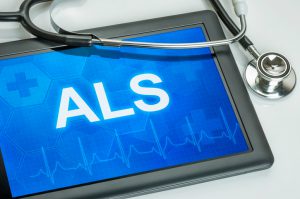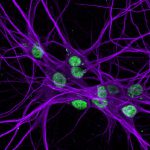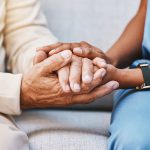
In May, the ALS Association Western Pennsylvania Chapter presented the Anne Lewis Advocacy and Humanitarian Award to Live Like Lou, in recognition of the organization’s initiatives and commitment to patients with amyotrophic lateral sclerosis (ALS) and their families.
The award was established in 2010 to recognize exemplary work in ALS advocacy and to support critical services for patients with ALS, their families and caregivers. This year, it was accepted by Suzanne, Abby and Patrick Alexander at a reception held at The Duquesne Club in downtown Pittsburgh. The Alexanders established Live Like Lou, a donor-advised fund of the Pittsburgh Foundation, in 2011 shortly after Suzanne’s husband, Neil, was diagnosed with ALS at age 46.
The Anne Lewis Advocacy and Humanitarian Award event raised over $100,000 and represents a unique collaboration between he ALS Association Western Pennsylvania Chapter, Live Like Lou and the Live Like Lou Center for ALS Research at the University of Pittsburgh Brain Institute.
The center’s efforts focus on both developing new treatments and, ultimately, a cure for ALS and improving the quality of life of people living with the progressive, degenerative neurological condition, also known as Lou Gehrig’s Disease.
“ALS is a devastating diagnosis that robs too many families of loved ones,” said Christi Kolarcik, Ph.D., a research associate at the University of Pittsburgh School of Medicine, Systems Neuroscience Institute and president of the ALS Association Western Pennsylvania Chapter. “In Pittsburgh, we have the local ALS Association, Live Like Lou and the University of Pittsburgh working together for the first time. This gives our ALS community hope and shows how committed each organization is to fighting ALS.”
Currently, there is no effective treatment for ALS, which causes progressive paralysis and eventually makes swallowing and breathing difficult, if not impossible, while sensation and cognitive function remain largely unaffected. Patients with ALS live an average of two to five years from diagnosis, and it costs approximately $250,000 a year to care for someone with ALS.
Current research at the Live Like Lou Center for ALS Research includes studies on how ALS affects the entire motor system and how problems with transport between the nucleus and the cytoplasm of the cell impact the disease.







